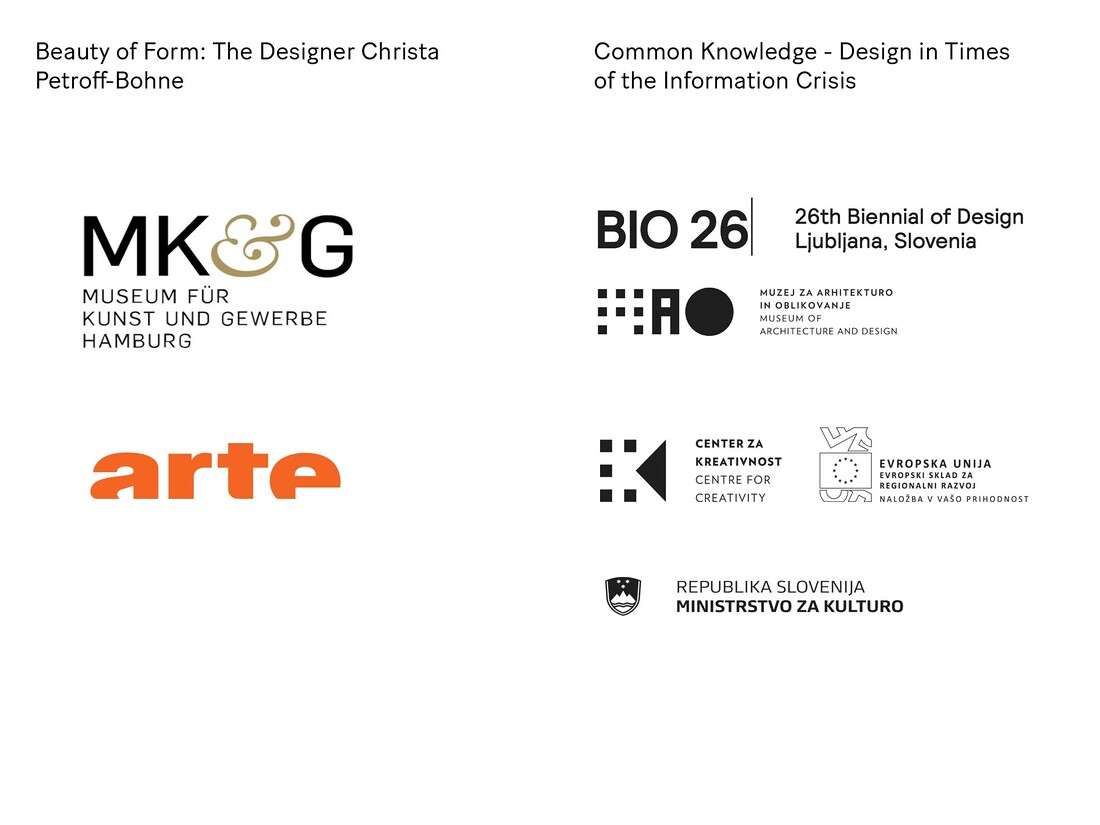Common Knowledge - Design in Times of the Information Crisis
June 27–November 1, 2020
Residenzschloss Dresden
Taschenberg 2
01067
Germany
Hours: Wednesday–Monday 10am–6pm
T +49 351 49142000
presse@skd.museum
Beauty of Form: The Designer Christa Petroff-Bohne
In the exhibition Beauty of Form, the Kunstgewerbemuseum (Museum of Decorative Arts) is dedicated to the work of the designer Christa Petroff-Bohne, who is one of the most important German designers* of the 1950s and 1960s. With her designs for industry, she brought contemporary design into every day culture of the newly founded German Democratic Republic (GDR). As a professor at the Kunsthochschule Berlin-Weißensee, she was a formative personality and influenced generations of students. Her work is an important testimony to modern design activities in the GDR and is also relevant in international comparison.
The presentation in the Wasserpalais in Schloss Pillnitz introduces the designer both as an industrial designer and as a teacher, shows her professional network and illustrates the situation of designers in the GDR as a complex network of relationships. In addition to industrial products, Christa Petroff-Böhne’s teaching activities and her mediation of aesthetic principles are illustrated in an unusual range using works by her students from the basic course “Visual-Aesthetic Design.” The show also focuses on the origins and contexts of this specific basic course for industrial design with references to the Bauhaus, the crafts, the “New Seeing” and the study of nature.
With this show, the museum once again takes up two themes that it feels obliged to address: on the one hand, the topic of GDR design in a broader discourse, and on the other hand, the examination of the work of female designers in the past and present.
Common Knowledge - Design in Times of the Information Crisis
Is COVID-19 fake news and a product of conspiracy? What do we really know? Which sources do we trust? In today’s knowledge society, we have to deal with manipulated news and alternative facts. Citizenship and governance both appear to have been shaken to their very foundations in this post-truth era. Although we have access to more information than any generation before, we are increasingly challenged in our efforts to make well-informed decisions. These factors and others make it difficult for many people in the digital age to create and share the type of “common knowledge” that supports better, more responsive policy.
BIO 26 in Ljubljana is Europe’s oldest design biennial. Founded in 1963, from November 2019 to February 2020 it was dedicated to the theme of Common Knowledge and seeks ideas that show ways out of the current crisis of information. Now she visits the Kunstgewerbemuseum in Pillnitz and presents a cross-section of her main exhibition at the 26th edition of the design festival, focusing primarily on the interrelationships between the multidimensional information crisis and citizenship. She explores the role and potential of contemporary design in shaping knowledge and truth and in recalibrating our infosphere.
The exhibition in the Wasserpalais in Schloss Pillnitz outlines in five thematic rooms classical and new fields of action in the design and communication of knowledge and spans the arc from artistic data processing to information and media design to investigative and speculative design approaches. Among them are large-format infographics by the French artist duo Bureau d’etudes as well as analog-digital interfaces by the design collective Commonplace Studio.
Kunstgewerbemusem
Schloss Pillnitz
Arnold-Böckstiegel-Straße 2
01326 Dresden







